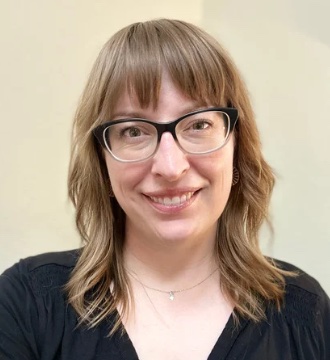Samantha Sullivan Evans
Samantha Sullivan Evans
“I Hated Reading”: Samantha Sullivan Evans (’11) on How She Became Passionate about History and Historical Research -- Memory #85 of 100

Today’s Project 100 memory comes from Samantha Sullivan Evans. Born and raised in Ewing, New Jersey, she went to public schools and graduated from Ewing High School in 2007. Her mother is a secretary for the New Jersey State Police, and her father is a contractor, sometimes working for himself and sometimes working for others. She has a younger sister. Upon graduation, she applied to three colleges, seeking to be a high school math teacher because math was her favorite high school subject. She began in that program at Rowan but only lasted one semester before deciding to attend Mercer County Community College. At Mercer, she changed majors multiple times before landing on history due to a fantastic faculty member. His name was Dr. Craig Coenen, and he taught United States history. He had great energy, made history alive, and was a fantastic lecturer. She still remembers him standing from time to time on tables to make his points. In 2010, she returned to Rowan as a history major. At the end of 2011, she graduated and became the first person in her immediate family to earn a Bachelor’s degree. After biding her time waiting tables for a few months, she entered the Masters of Science in Teaching program at Rowan, and thirteen months later she received certification to teach K-12 social studies. She held a number of jobs in various public schools, including substitute teaching, before landing a regular teaching position. After eight years in the classroom, she moved to become an administrator charged with overseeing and improving the social studies curriculum. She currently works for the Texarkana Independent School District in Texarkana, Texas.
*****
My first semester at Rowan I had Dr. William Carrigan for Historical Methods at 8am on a Friday. That was the first time I was taught to closely read anything. I see that moment as transformative in my education. Previously, I hated reading. From that moment on, I became fascinated with deep reading, research, and writing. Before this, I was reading but not fully comprehending. I certainly wasn’t reading actively, thinking about why and how the author made the choices they made. It opened up my mind, as I now understood that authors made so many decisions about what to include and what to leave out. I had seen history through the lens of a textbook, as a series of dates, events, and facts. I now saw history form a historiographical perspective, and it greatly increased my fascination with the subject.
Dr. Carrigan was not the only inspiring professor at Rowan. Dr. Morschauser was also a tremendous professor. He was a great storyteller with immense knowledge. I took two of his classes. One of them was Ancient Egypt, and that class still resonates with me to the present. I also took a graduate course with him that furthered my interest in historiography and historical theory. Another professor whose teaching inspired me was Dr. Melissa Klapper. I took Women in American History with her, and it was fascinating to hear the various ways that women’s history had been taught over the years. I am sure that course influenced me to include more women’s history than I might have otherwise when I became a teacher. I remember, as a student teacher, running a “Seneca Falls Convention.” Finally, I had United States Legal and Constitutional History and American Intellectual History with Dr. Emily Blanck. I loved both of those classes, and the intellectual history course ended up being one of my favorite classes.
Looking back, some of my favorite memories are the research papers that I wrote. I am especially proud of the paper that I wrote on slavery in New Jersey, which challenged the existing scholarship for downplaying the importance of slavery in the state. I presented that paper at the regional conference of Phi Alpha Theta in 2011. Another research paper that I very much enjoyed writing was one on train robberies in the American West, which I wrote for Dr. Joy Wiltenburg’s History of Crime course.
During my time at Rowan, I was lucky to serve as a research assistant for Dr. Carrigan. I helped out on numerous projects, but I am most proud of my contributions to his work editing and publishing Gary Hunter’s manuscript, Neighborhoods of Color: African American Communities in Southern New Jersey, 1638-2000. Due to Dr. Hunter’s sudden passing, Dr. Carrigan took the lead in shepherding his nearly completed manuscript to publication. I was able to help him with that, and my skills and knowledge of New Jersey history were, by that time, advanced enough that I was able to make a real contribution to the final version of the manuscript.
I loved doing historical research, and I was torn about pursuing a doctorate in history. For financial reasons, I decided against applying, but I have never completely abandoned the idea. I have continued taking graduate courses in history over the years, always thinking that I might someday pursue a doctorate, even though I am happy with my current job. In fact, I am very excited about the future, as I hope to be able to influence the teaching of K-12 social studies education broadly in the coming years.
*****
This is part of the Department of History’s “Project 100,” the collection and sharing of one hundred memories by Glassboro State College and Rowan University alumni and staff in celebration of the 100th anniversary of the founding of Glassboro Normal School, later Glassboro State College, and now Rowan University. Thanks to Laurie Lahey for helping proofread and edit the final versions. Email carrigan@rowan.edu with questions or corrections. You can find the Link to all of the Project 100 entries on the Web: https://chss.rowan.edu/departments/history/alumni_highlights/project_100/



